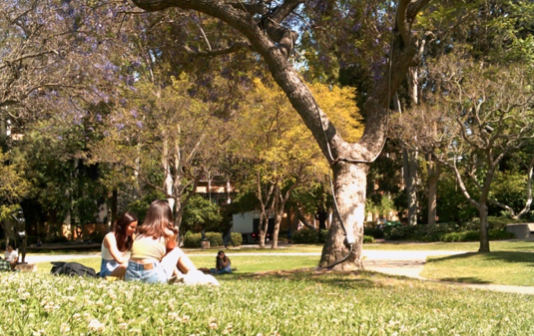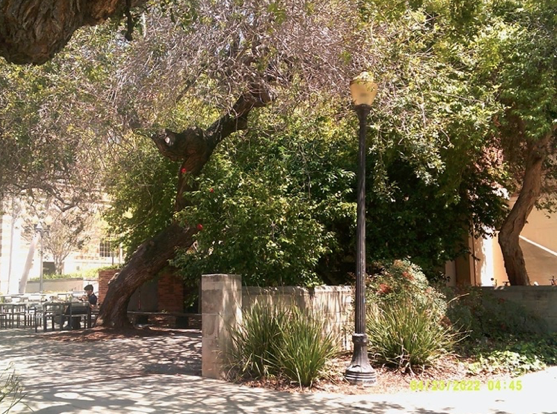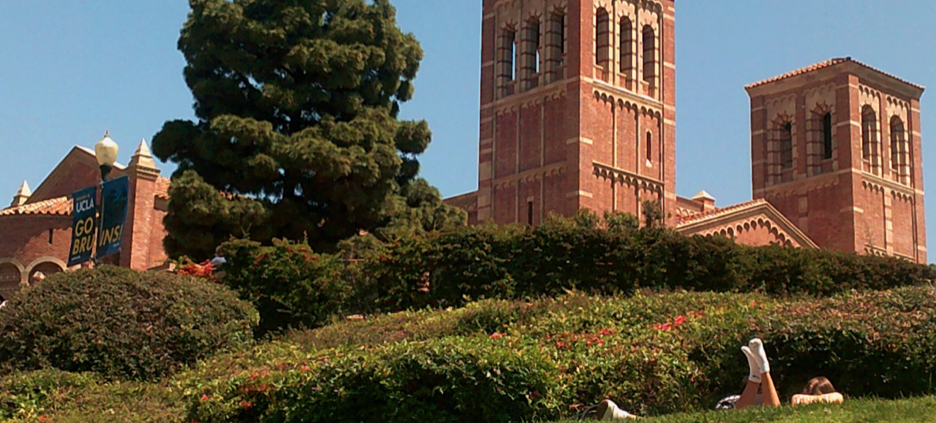How UCLA’s Landscape Plan Affects Your Health
How UCLA’s Landscape Plan Affects Your Health
UCLA’s vibrant campus is known to draw crowds of students, who gather on sunny days to enjoy picnics, engage in sports, or simply unwind by Tongva steps. These natural inclinations toward grassy patches, the botanical gardens, and outdoor study spaces is no surprise considering all of the benefits being outside provides. The positive association between

spending time outdoors and improved health has long been established, including reduced anxiety, increased recreational opportunities, and enhanced community cohesion. Notably, a study conducted by researchers at Denmark University’s Aarhus revealed a correlation between residential green spaces and a lower likelihood of developing mood disorders such as depression, neurotic behavior, and stress-related issues.
The current UCLA Master Landscape plan, with its guiding principles, recognizes the importance of creating green spaces that are multi-functional and universally accessible. Beyond initiatives for safer transportation and ecological restoration, the strategic increase in green spaces, if implemented, will directly enhance student life.

Of the recommendations outlined in the landscape plan, there is a focus on comfort. This includes the addition of tree canopies, shaded structures, and cool paving, all of which contribute to extended outdoor stays and resilience against extreme heat conditions. Other recommendations aim to encourage outdoor recreational and physical activities by adding trails and simplifying the process of reserving outdoor spaces for events. Furthermore, to promote spiritual and mental well-being, the master plan suggests increased ecological restoration efforts, the creation of intimate spaces, and the designation of quiet zones on campus. Several of the existing outdoor study spaces are being considered for expansion, additional tree canopies, and more visually appealing landscaping.

Dr. Howard Frumkin, a renowned physician and epidemiologist currently serving as Professor Emeritus of Environmental and Occupational Health Sciences, has devoted his career to exploring the interplay between the built environment, public health, and sustainability. His research aligns with the mission of the BEWell pod, which seeks to improve the built environment at UCLA. By delving into the potential contributions of nature in creating equitable and livable cities, Dr. Frumkin’s expertise can deepen our understanding of environmental health. Our June Pod Meeting, held on Wednesday June 7 at 2pm, will feature a presentation by Dr. Frumkin followed by an interactive Q&A session. To RSVP, email BEWell2013@ucla.edu for a zoom link.
Since the implementation of the master plan will change the landscape of UCLA for a lifetime, we must use it as an opportunity to improve our health, happiness, and natural environment.
1 Engemann, Kristine et al. “Residential green space in childhood is associated with lower risk of psychiatric disorders from adolescence into adulthood.” Proceedings of the National Academy of Sciences of the United States of America vol. 116,11 (2019): 5188-5193. doi:10.1073/pnas.1807504116


